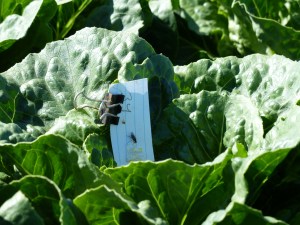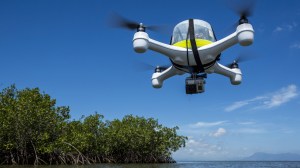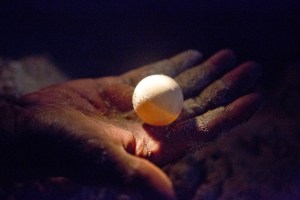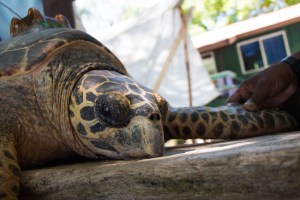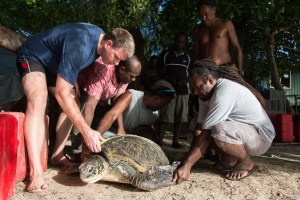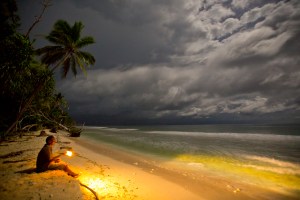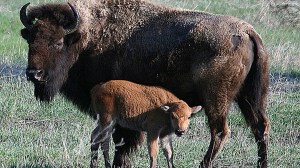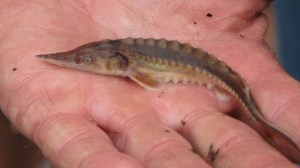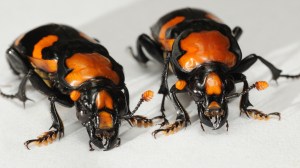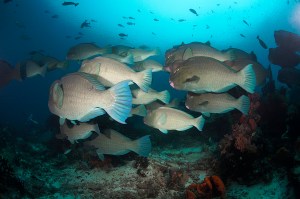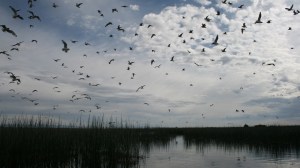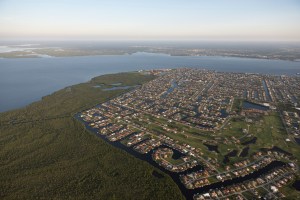Discover stories in Conservation Science
Nature Doesn’t Hurt Farmers, It Helps
If removing habitat from farms doesn’t improve food safety, are other practices equally as ineffective, or worse, potentially damaging to farmers? A new study says yes.
10 Innovations That Are Changing Conservation
Around the globe, conservationists are employing the latest technological advances to make a difference for people, wildlife, oceans, forests and clean water.
Headhunters, Poaching, & Arson: Community Conservation in the Arnavons
After a 40-year history punctuated by arson, conflict, and poaching, conservation efforts in the Arnavon Islands are yielding a glimmer of hope for hawksbills sea turtles. Now, Conservancy scientists are working with local communities to make these critical islands the first site in the Solomon Island’s protected area network.
Unraveling the Mystery of Hawksbill Sea Turtle Migration
Join Conservancy scientists in the Arnavon Islands, where they’re tagging hawksbill sea turtles with satellite trackers to discover where and when these turtles migrate in between nesting.
A Day in the Life of a Field Scientist: Arnavon Islands Edition
Follow science writer Justine E. Hausheer along on a typical day of scientific fieldwork in the Arnavon Islands: tagging turtles, trapping for nautilus, handlining fish, and catching crocs, all in the name of science.
A Slaughter on Sikopo: Poaching Threatens Hawksbill Turtles in the Arnavons
Grim news on two of the tagged hawksbill turtles highlights the need for the Conservancy's investigation into the illegal hawksbill trade in the Solomon Islands.
Watching a Baby Bison Die
This spring, well-meaning tourists tried to rescue a Yellowstone bison calf from the cold. It didn’t end well. What happens when we put our human narratives on the wild.
Restoring an Ancient Nursery for Atlantic Sturgeon
Atlantic sturgeon were once so plentiful that during their spring spawning runs they would upset boats on the Delaware River. Today, scientists are working to bring this ancient fish back from the brink.
Recovery: Saving American Burying Beetles, Nature’s Undertakers
American burying beetles once took care of carrion over broad regions of North America. But their numbers have dwindled. What’s going on? And can we save them?
Hyperstability: The Achilles’ Heel of Data-Poor Fisheries
New research indicates that hyperstability — when catches remain high even as fish are rapidly depleted — could be a major challenge for assessing data-poor coral reef fisheries.
A Cruise to a Nesting Ibis Colony
Wetlands for nesting, farms for forage: the combination is ideal for wading birds. White-faced ibis, in particular, need areas like Mud Lake in Idaho like rivers need rain.
The Effectiveness, Costs and Coastal Protection Benefits of Natural and Nature-Based Defenses
A global synthesis of field measurements shows that coastal habitats – particularly coral reefs and mangroves, can be physically and economically effective at protecting coastlines.
